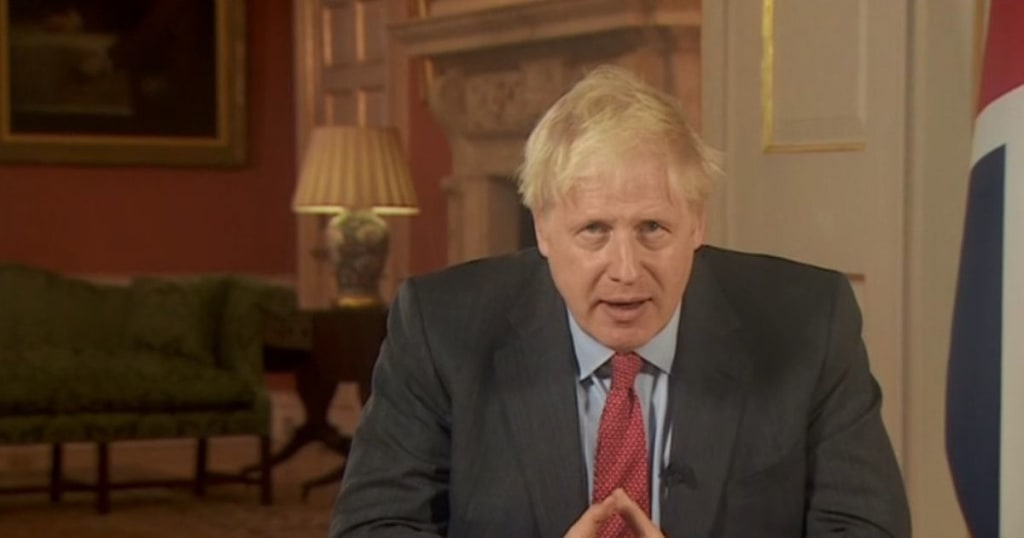
British Prime Minister Boris Johnson has finally agreed a deal with the European Union on the UK’s terms for leaving. The agreement covers issues from trade to fishing and is said to be worth around £660 billion a year. The deal was struck on Christmas Eve after negotiations had been deadlocked over the issue of fishing rights.
The issue which couldn’t be resolved was who had the right to catch the one hundred shared fish stocks that both countries had and this was taking time to resolve as EU fisherman wanted full rights over any fish that they may have caught in UK waters. Mr Johnson is understood to have made a major consession to the European Union by agreeing to it’s red line of no more than twenty five percent of the value f fish caught in UK waters being repatriated to British fishermen.
In return he has secured a five and a half year transition period during which the new quotas would take effect. This would preceed annual negotiations over fishing rights with the EU. Those annual negotiations are seen by UK officials as fundamental to their negotiating target of taking back control of access to British seas and appeared to have unlocked the deal.
Mr Johnson and Ursula von der Leyen, the president of the European Commission, which now had to be translated in to hard numbers. When the EU sent it’s calculations to London, the figures only added up to twenty two percent of repatriation, rather than the twenty five percent which had been agreed.
It meant officials had to work through the night and Christmas Eve morning to recalculate the numbers on all 105 different species of fish and shellfish covered by quotas.
Mr Johnson had already moved hugely from his original demand for 80 per cent of EU quotas to be returned, in exchange for the EU coming down from a 14-year transition period to five and a half years.
During the negotiation period, the commision had to ring round several European Union fisherman from countries such as France, Denmark, Belgium, Ireland, the Netherlands and Spain to ensure the deal still had their support.
A late night pizza order had to be put in as negotiations were going on in to the early hours. There were yet more delays before the issuing of a joint press release and press conference.
The main parts of the deal include:
Trade
Neither side will impose tarriffs on goods traded between the two countries. There will also be a zero quota aggreement which should mean that there is no limit on the kind of goods or services being traded across the border.
Mr Johnson likened the final deal to the “Canada plus plus” arrangement Brexiteers had wanted all along because it will have the benefits of the deal the EU struck with Canada but without any of the quotas or tariffs imposed on some Canadian goods.
The UK will also now be able to secure independent free trade agreements with other countries. The deal is also expected to cover financial services which is eighty percent of British exports by recognising proffessional qualifications
Fishing
Britain offered the EU a three-year transition period but demanded it return 80 per cent of its quotas for catching fish in UK waters. The EU countered by demanding unfettered access to UK waters for 14 years in return for giving back just 15 per cent of its quotas.
The two sides will trade on a level playing field with the EU threatening to impose tarriffs if the UK strayed too far from it’s aggreement and way of trading. This way the two countries will be very closely alligned throughout their trading relationship and way of doing things.
A new dispute resolution body will be set up to solve any problems the two parties have in trading with each other. This will help to ensure fair practices are followed and that everyone plays by the agreed rules.
In the new year, British nationals will need visas to remain in the EU for ninety days in a one hundred and eighty day period. Travellers can still use their European Health Insurance card to cover any costs if they fall ill when in the European Union.
UK mobile numbers will no longer be entitled to free roaming when in the EU and standard call charges will apply.
The UK will carry on taking part in the Erasmus exchange programme but will pay for taking part in any research to find out about certain aspects of how society functions.
Both sides have agreed to let data continue to cross from one country to the other seamlessly with no charges.